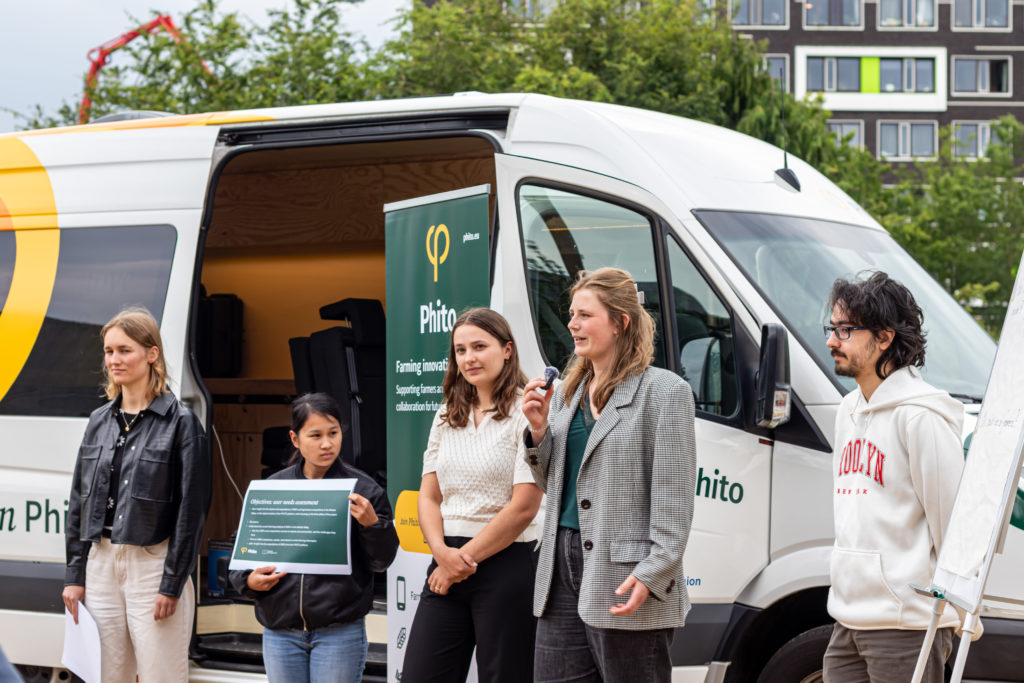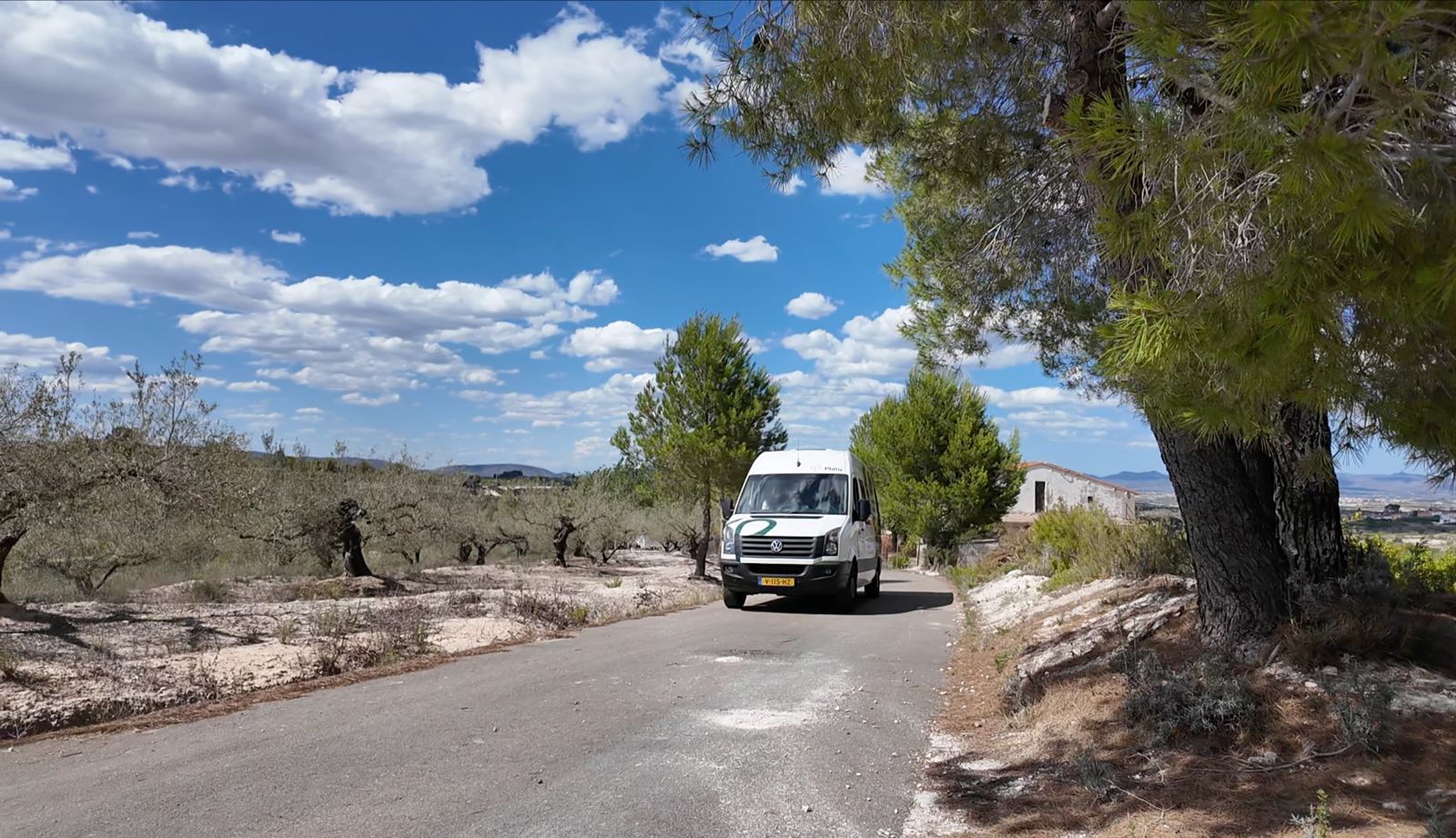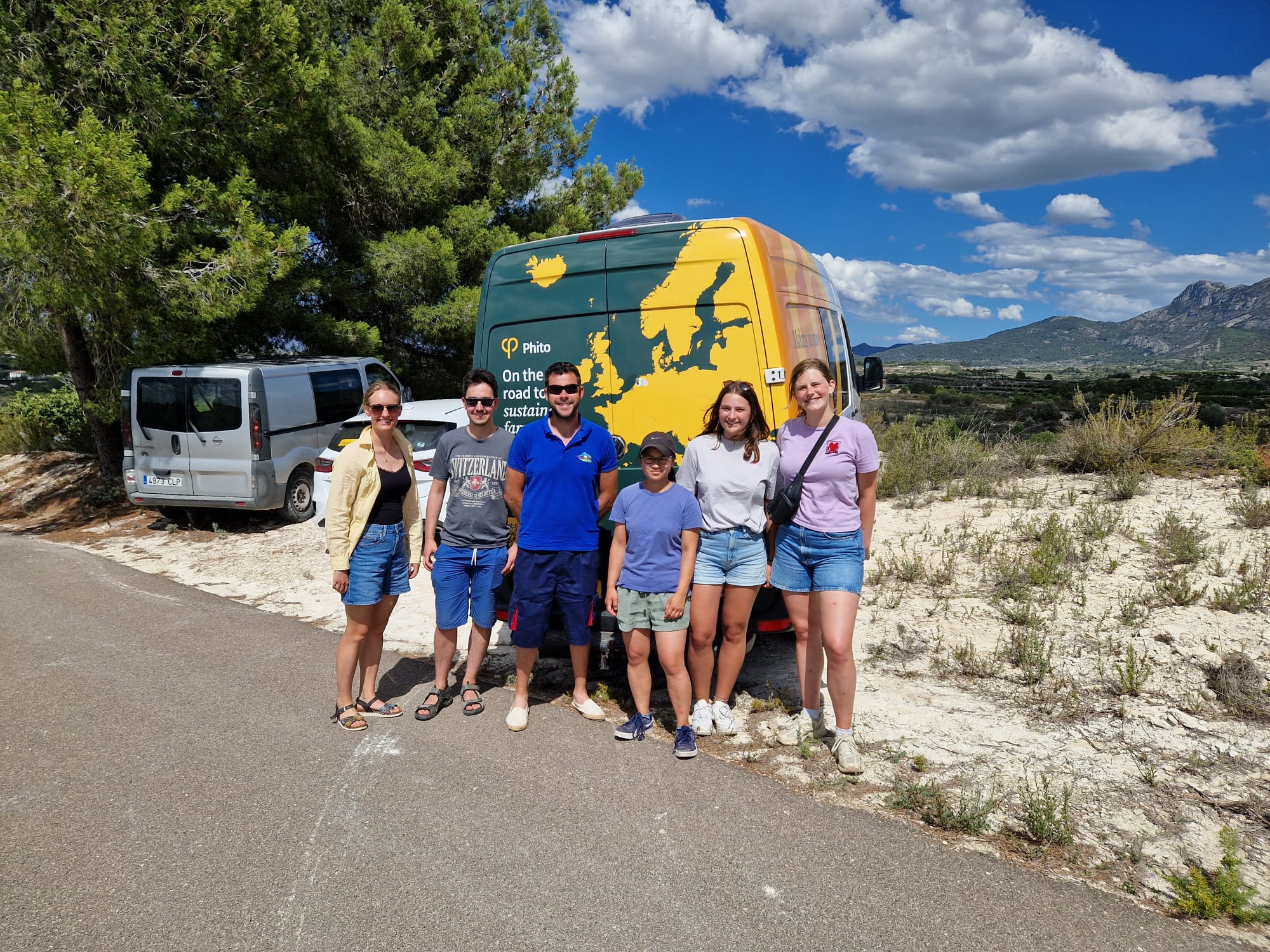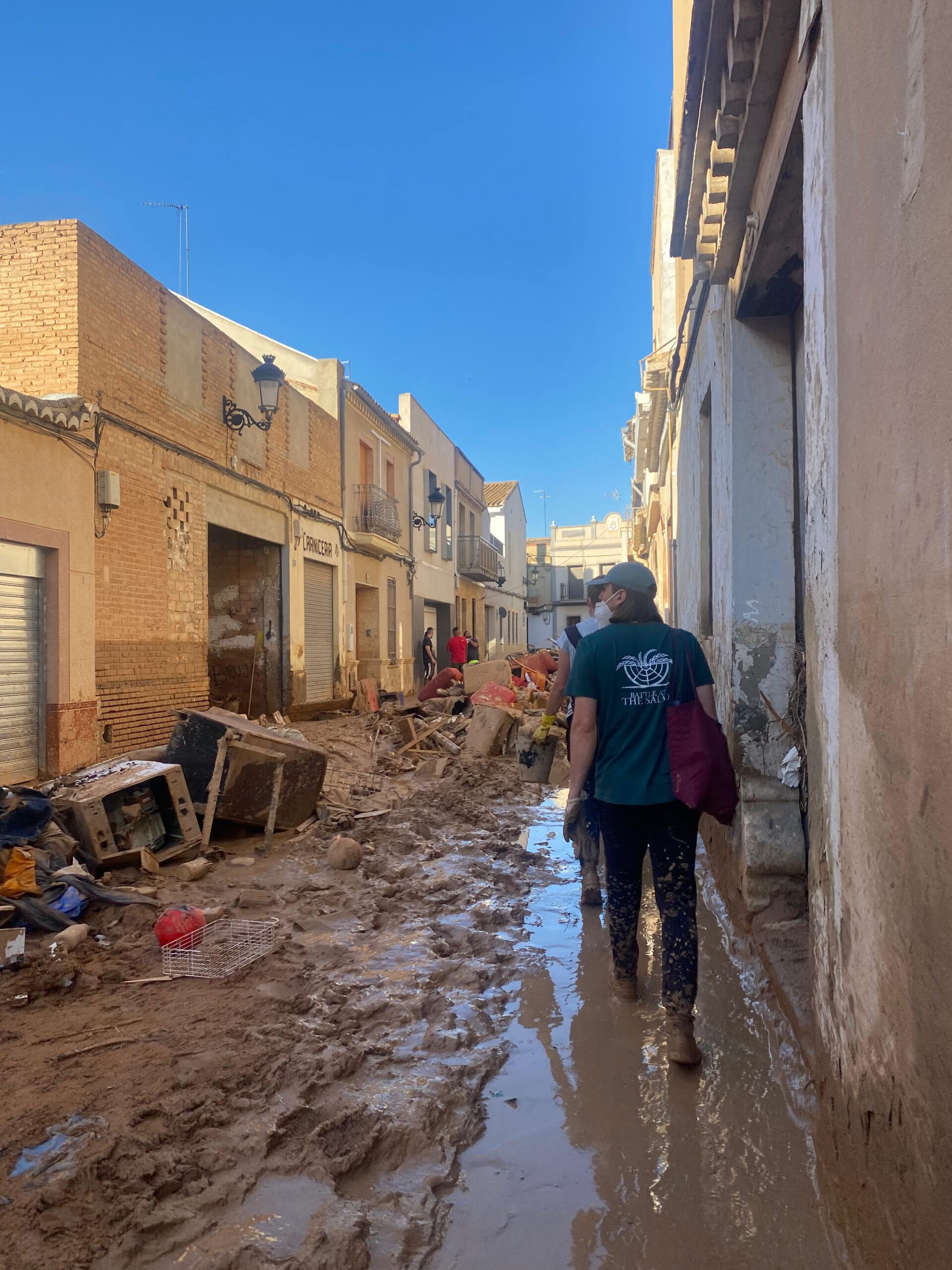This so-called user needs assessment is part of the students’ ACT project, in which they talk to as many Spanish farmers and cooperatives as possible. The road trip is made using a van, which has been available for a four-year period to students wanting to travel through Europe for a few weeks.
Aniek van der Steen and Lianne Sänger, both MSc students in International Land and Water Management, talk about their ACT project. ‘It is all about developing an app for farmers. The app, which is called Phito, makes precision agriculture and other technological innovations in farming available to small-scale farmers at no charge to enable these farmers to benefit from data-driven advice and contribute to the agricultural transition. The app is also designed to bridge the gap between large-scale, rich farmers who are able to deploy advanced technologies and small-scale farmers who lack the funds and time to follow suit.’

Students will visit cooperatives, farmers and farmers’ markets, says Van der Steen. ‘We want to talk to as many farmers as we can to determine what features the Phito app should have in order to benefit small-scale farmers wanting to use precision agriculture. What are their needs?’
First
The ACT group is the first group of students to embark on a road trip with the van, which is available to students and researchers wanting to participate in this project during the next four years. The project is funded by the EU and facilitated by WUR. The van was presented on the campus on 6 June. In an earlier article, Resource interviewed WUR teacher Teun Vogel about the project.
The WUR students will use a questionnaire and conduct one or two interviews each day, says Sänger. ‘Half of our group is currently on their way to an interview. Aniek and I are about to head off to a framers’ market. ‘The interviews are challenging, she says. ‘There is the language issue; not many farmers are well-versed in the English language. Two of our group members speak some Spanish but are not fluent. They can conduct the interviews and take notes. We also use translators.’
Updates
In addition to the research, the ACT group is also charged with the Phito project’s social media. Van der Steen: ‘We post updates on Instagram, for example, to show us travelling to an interview, or clips on the different issues, such as drought, which the farmers face.’
The students will remain in Spain for their project until 5 July. They will then travel to Italy to continue their user needs assessment.


 The ACT group with the van. Photo Lianne Sänger
The ACT group with the van. Photo Lianne Sänger 

